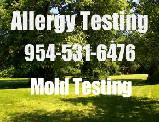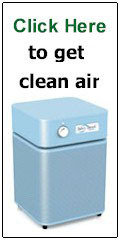What Is Asthma?
Asthmatic Video ExplainedAsthma is a lung disease that can be life threatening. It is a chronic, or long-term disease, which can affect you for the rest of your life. Asthma causes breathing problems. The airways in the lungs get blocked, causing the lungs to get less air than normal. Symptoms of an "asthma attack" can be difficulty with breathing, a tight feeling in the chest, coughing and wheezing. Asthma can develop quickly and it can range from being a mild discomfort to a life-threatening attack if breathing stops completely. These problems are often separated by symptom-free periods. What Happens In An Asthma Attack?Asthma can cause breathing problems, this called asthma attacks or episodes of asthma. During an asthma attack, three major things happen in the lungs:
These changes cause the air tubes to narrow which makes it hard to breathe. Who Gets Asthma?In the United States, about 19 million people of all types of people have asthma. Asthma is more common in children than with adults. It is one of the leading causes of school absenteeism due to a chronic illness. It is extremely common in school-age children. Asthma has no race barrier either, it is common with most inner-city children. A lot of asthma cases go undiagnosed as allergies.
What Triggers Asthma Attacks?Asthma attacks can be caused by something that irritates the lungs. These irritations are called asthma triggers. There are multiple types of asthma triggers. There are two major categories of asthma triggers called allergens and irritants. If you, or one of your loved one's has asthma, it's very important to understand what triggers can be a problem. Your Doctor can help understand the seriousness and suggest keeping an Asthma attack diary or recommend skin testing for allergies. Once you understand what sets it off, actions can be taken to prevent asthma attacks. Limiting your exposure to your triggers may help in avoiding asthma attacks. If and when they occur, it will probably be less severe. Asthma TriggersThere are many different asthma triggers. The different categories of triggers are allergens and irritants. Allergens are substances that cause problems for some people but not all individuals. There are many Irritants such as formaldehyde, cigarette smoke, chemicals, perfume, and paint and gasoline fumes can trigger asthma. These irritants can trigger asthma symptoms by irritating the respiratory tract. This in turn, causes the muscles surrounding the airway to constrict, which results in an asthma attack.Since Americans spend up to 70% of their time indoors, exposure to indoor allergens and irritants can play a significant role in triggering asthma episodes. The following is a list of the indoor environmental asthma triggers:
I Have Asthma, What Can I Do?If you have asthma, it is important to know how to reduce your chances of having an asthma episode and what to do once you have an asthma attack. Your doctor can help you with the medical part of it. Safe-Homes can help by showing you how to make your indoor environments safer to live in. We inspect your home or office and give you solutions to what can be causing the episodes of asthmatic attacks from you environment. We can work together with your physician to set up an asthma management plan. We can work with your doctor to help learn to monitor your asthma and identify and avoid your asthma triggers. Following this asthma management plan will help keep your asthma under control. Call (954) 531-6476 Copyright © 2003 Safe Homes Environmental Consultants All rights reserved. |




